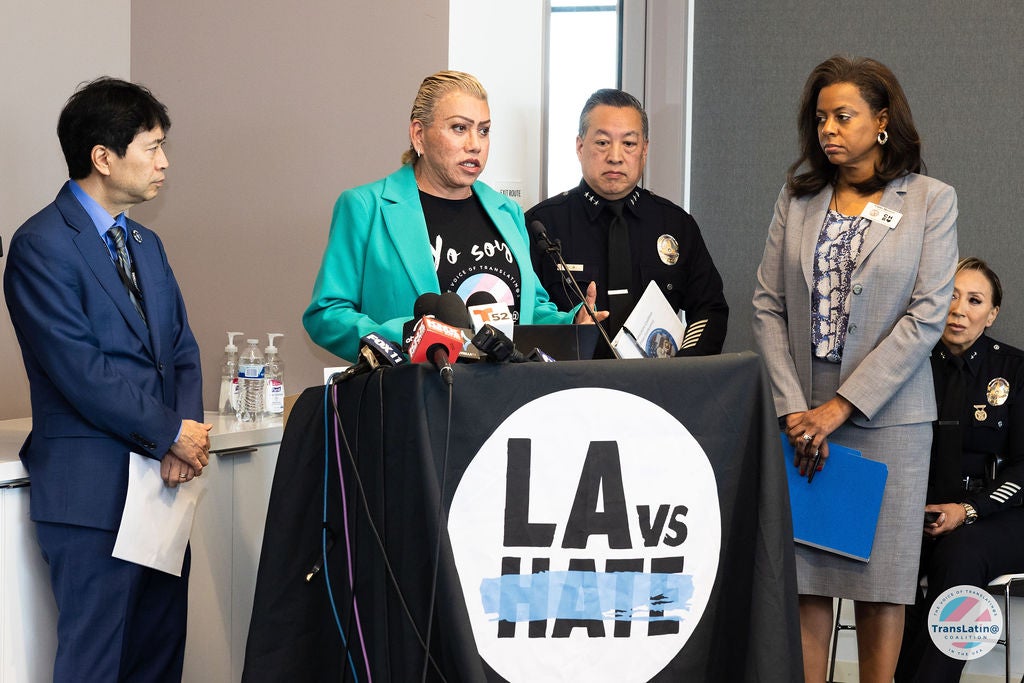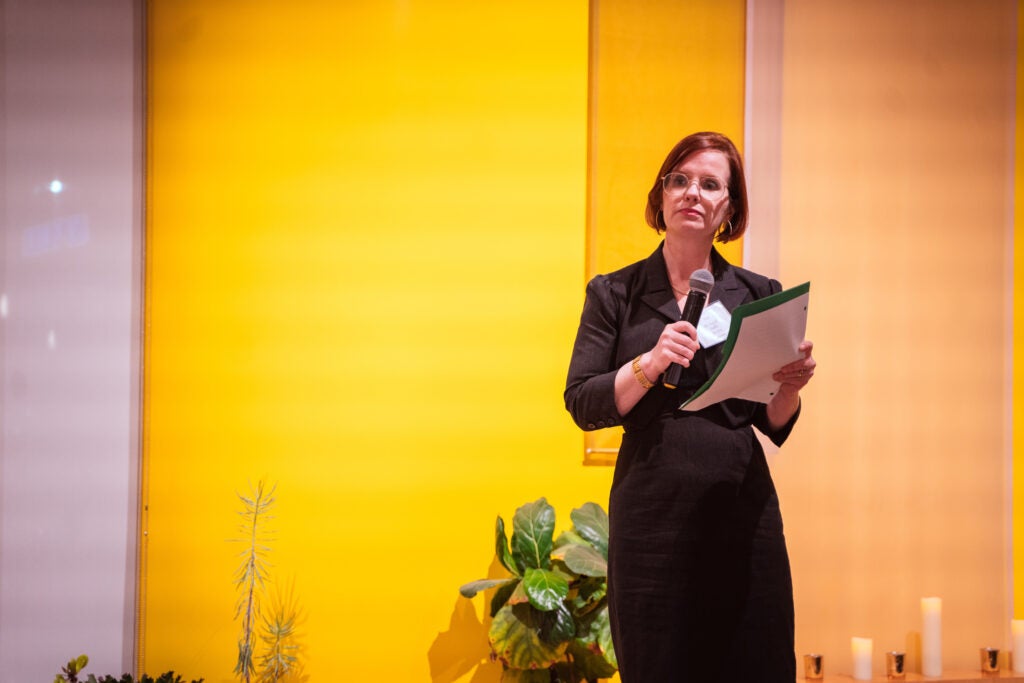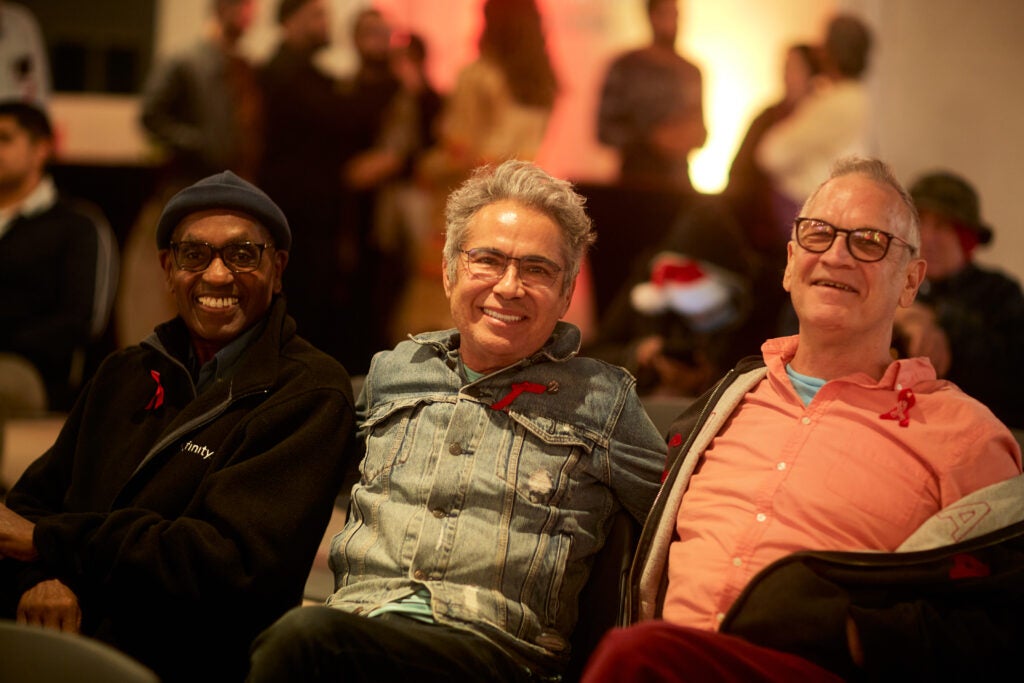I often refer to myself as a “professional lesbian.” I say it because it’s funny and everyone thinks that lesbians are buzzkills. But I also say it because it’s true. I bring that part of my identity into my work because there’s no way around it—my sexuality is inherent to who I am as a person.
In my current role as the organization’s Chief Medical Officer, I oversee all of the Center’s medical services, including primary care, HIV treatment, gender-affirming care, and more. Previously, I served as Medical Director of the Audre Lorde Health Program (ALHP), an initiative within the Center’s medical clinic dedicated to providing services for anyone who has identified as a queer woman or girl at any point on their journeys.
The program was named after the fierce, self-described “Black, lesbian, poet warrior” Audre Lorde, who herself had a long and painful history within the healthcare system. Diagnosed in 1978 with breast cancer, Lorde wrote extensively about the fear, dissociation, and anger her experiences with medicine evoked. Like many people, Lorde didn’t see herself in the physicians providing her care—not in their whiteness, their straightness, nor in the way they approached the female body. Her doctors never saw her whole self, she wrote. Instead, she was often reduced to her cancer, or her Blackness, or her gender. They never saw her sexuality at all.
This is ALHP’s commitment to our patients: We will see and honor you as a full individual.
Dr. Kaiyti Duffy, Chief Medical Officer, Los Angeles LGBT Center
In our work at ALHP, we uphold the tenets of sex positivity and trauma-informed care in everything we do.
Sex positivity requires acknowledging our sexuality—all that it encompasses—and holding space for it. Patients come to us because they don’t have to tiptoe around questions about sex, feeling ashamed or embarrassed. When a queer patient sits across from queer medical provider, there is a recognition—sometimes subtle and unsaid—of shared experience that results in higher quality care.
In truth, when a patient sits across from a clinician in any clinic, they share a connection as sexual beings. But in non-LGBTQ+ spaces, for whatever reason, we tend to shy away from it. In these spaces, discussions of sex and sexuality often occur only through the lens of pathology.
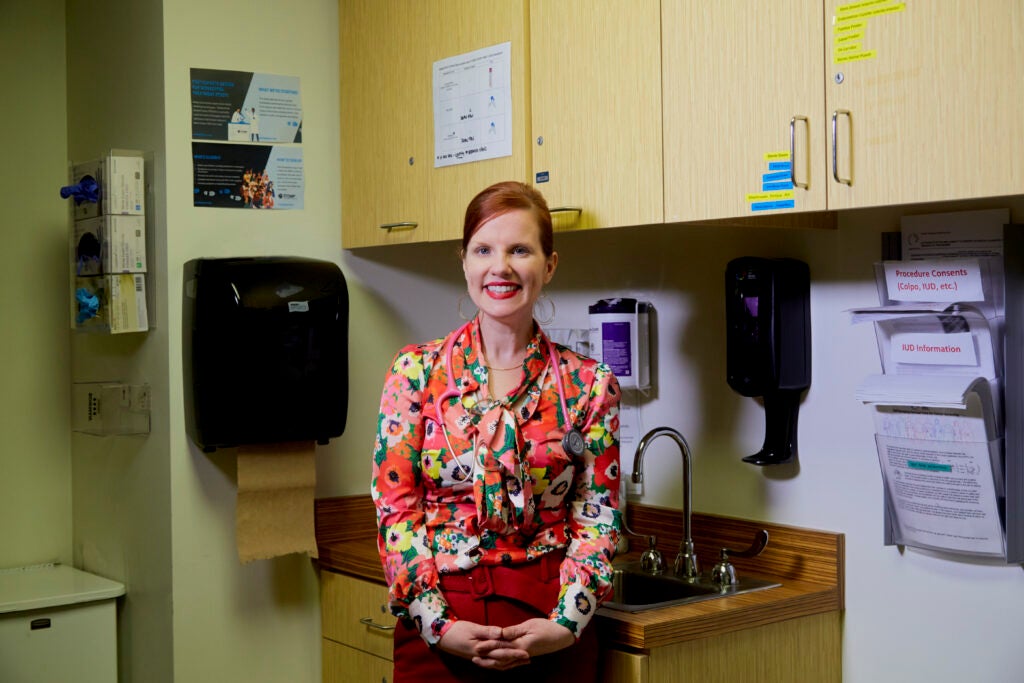
Sexuality is a complex facet of our experience that comprises a person’s beliefs, attitudes, notions, fantasies, values, methods of communication, self- and body image, personality, socialization, and past experiences, which are strongly linked to identity, orientation, and well-being. Our sexuality is the very essence of what makes us unique individuals. It is everywhere—but at the same time, it is nowhere, because our culture is often so uncomfortable with the very idea of it. At ALHP, we embrace it.
“Trauma-informed care” is a phrase that gets thrown around a lot. It’s easy to say, but so very hard to put into practice. As Audre Lorde learned painfully well, the practice of medicine and the modern healthcare system are often guilty of inflicting great trauma without acknowledgement. Every person with a cervix can likely recall a time when a speculum exam felt traumatic, painful, or somehow wrong. Care should never feel wrong.
Every time I do a pelvic or speculum exam on a patient, I let them know that the procedure may be uncomfortable, but it should never be painful. I tell them, “If you experience pain, please tell me immediately.” The other thing I say is that our brains often understand that these exams are being done for the purposes of health, but the body is not necessarily always in on the consent process.
Sometimes, during exams like these, our bodies start talking to us. They say, “I’m uncomfortable” or “I don’t feel safe.” Our instinct is to shut that down. We don’t want to disappoint our doctor, or we want to check this task off our to-do list. But in this space, I tell our patients, we listen to bodies. If the body starts sending messages of feeling unsafe, we stop the exam immediately. Sometimes, the body just needs a few minutes to check-in. Other times, we need to reschedule—and that’s absolutely okay. What we don’t want is to have our patient’s body leave saying, What did you let happen to me? Because the body remembers that.
After saying these words to my patients, I’ve actually had people cry. I get emotional myself, thinking how impactful they would have been at my first speculum exam—or even at my most recent.
Care should never feel wrong.
Dr. Kaiyti Duffy, Chief Medical Officer, Los Angeles LGBT Center
However, even with these words of reassurance, some patients simply cannot undergo a speculum exam, possibly due to gender dysphoria or a history of sexual trauma. Cervical cancer screening is important, but it’s equally important to respect these boundaries. This is why we developed a protocol for cervical cancer screening that involves the patient self-collecting their own specimens. We’ve had to do this in the absence of national medical guidelines, because—let’s be honest, the governing bodies responsible for creating these guidelines do not take our community into account when considering standards of care. But after painstaking reviews of the literature, we created a protocol that is courageous, evidence-informed, and truly patient-centered. After launching this initiative, our cervical cancer screening rates skyrocketed, and they’re now among the highest within community clinics in LA County.
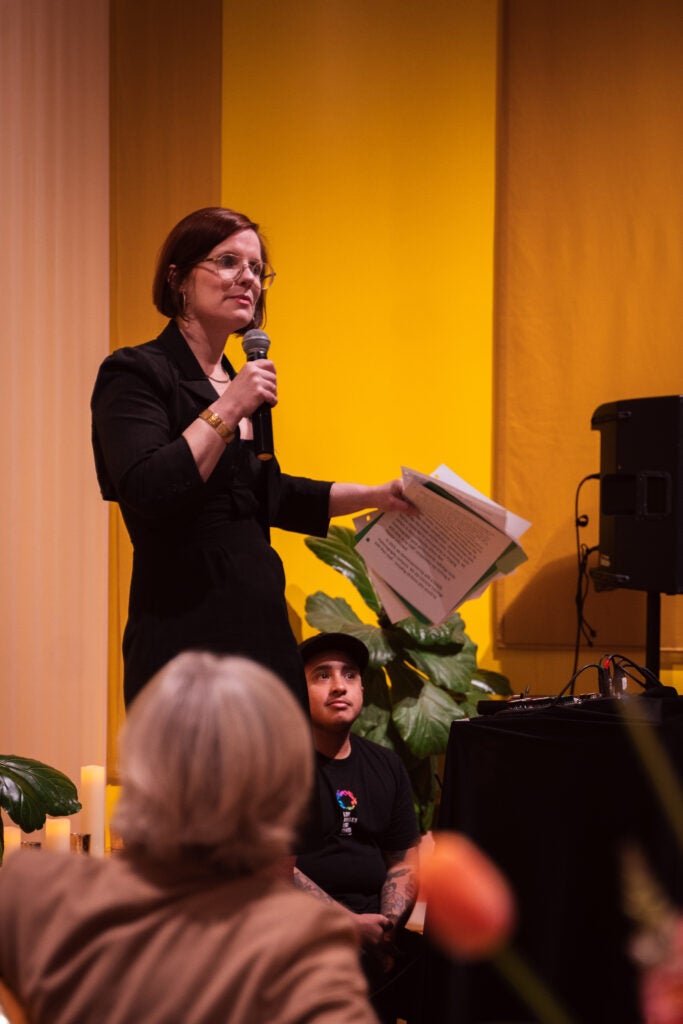
This is ALHP’s commitment to our patients: We will see and honor you as a full individual, including your sexual self. We will meet you where you are on your health journey. There will be no place for shaming or gaslighting. We will go above and beyond to make you feel safe and seen in the care you are receiving. We will deliver that care with vulnerability and insight driven our shared experiences as queer people in this world.
How I wish Audre Lorde had found a clinic space like ours during her years of illness. In her name, I promise to do my best to ensure that this care is available to queer women, nonbinary, and trans people who need it.
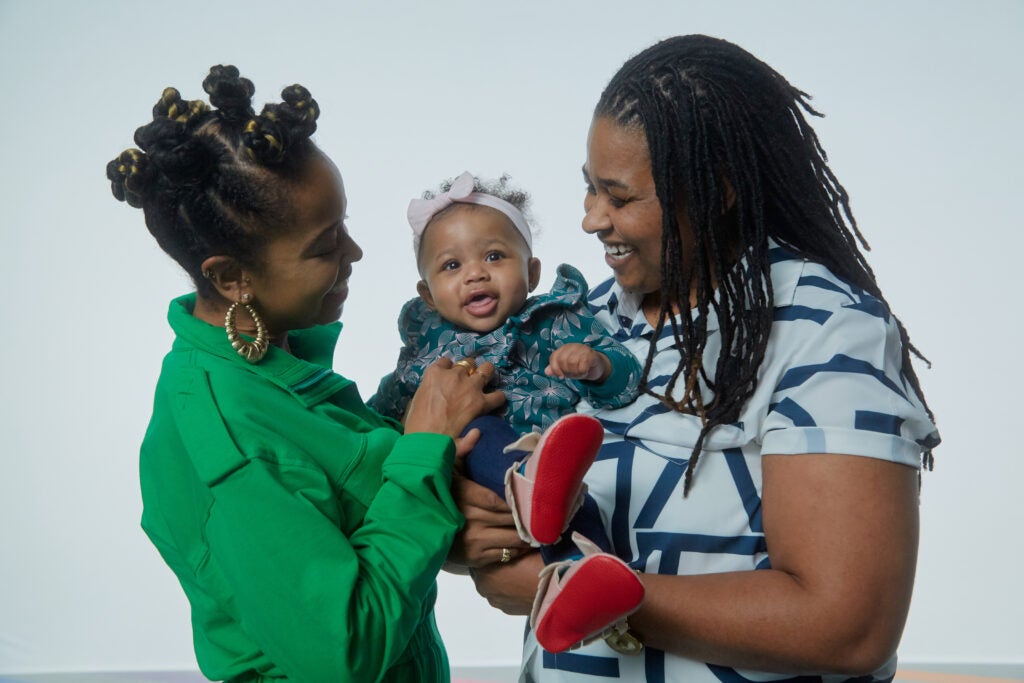
Read More
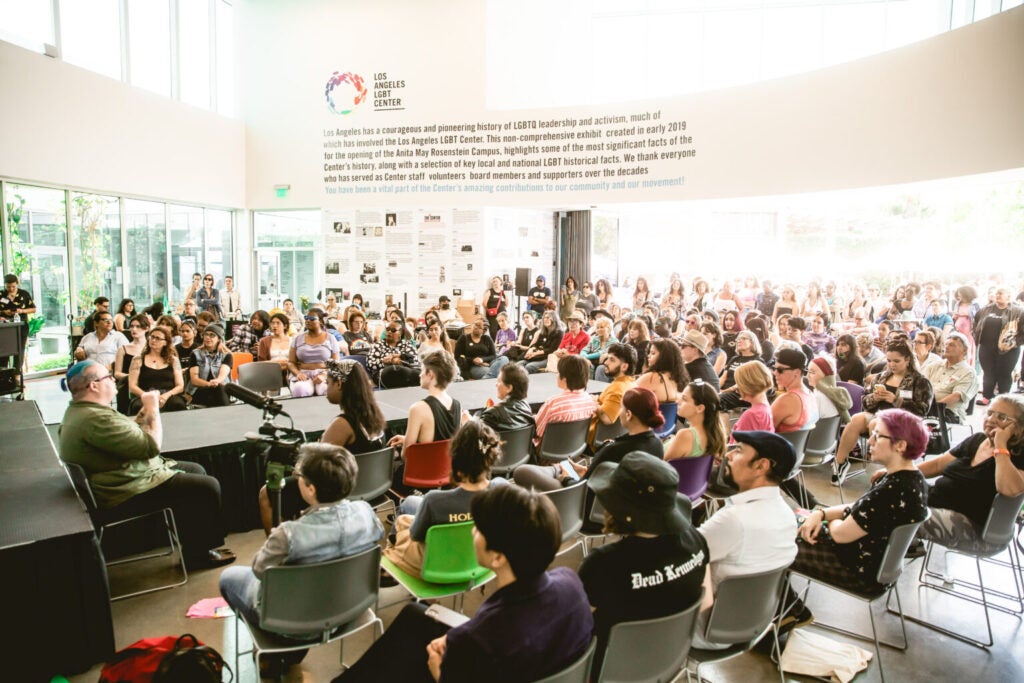
Roxane Gay Celebrates Audre Lorde Health Program at WxW: ‘Care in the Truest Sense of the Word’
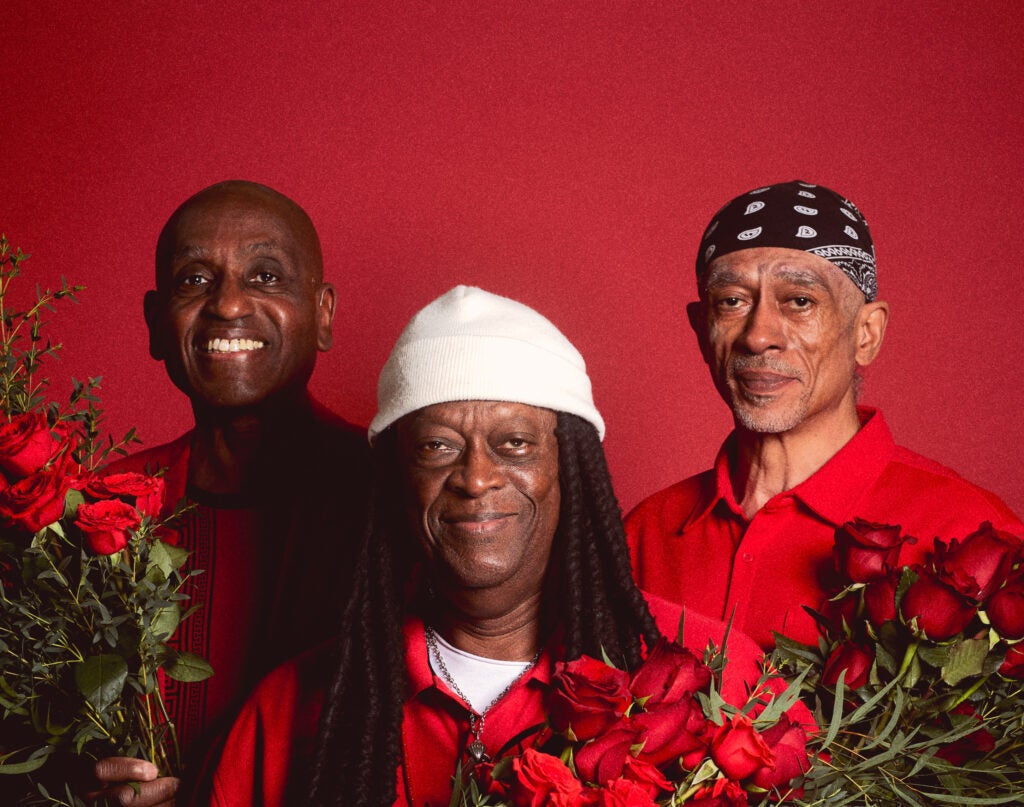
“Our Lives Matter”: Our Elders Raise Their Voices for Black HIV/AIDS Awareness Day
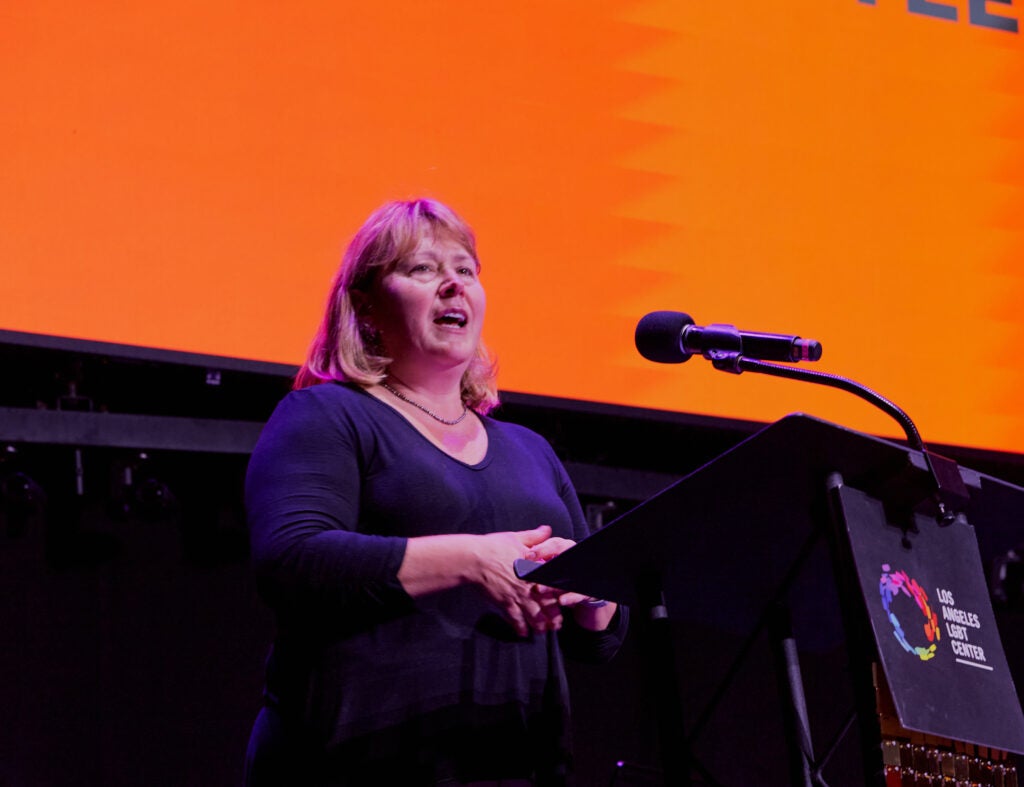
Cynthia “Cyndi” Harrison Honored with Inaugural Sharon Franklin Brown Award for Employee Excellence, Celebrating 24 Years of Service
